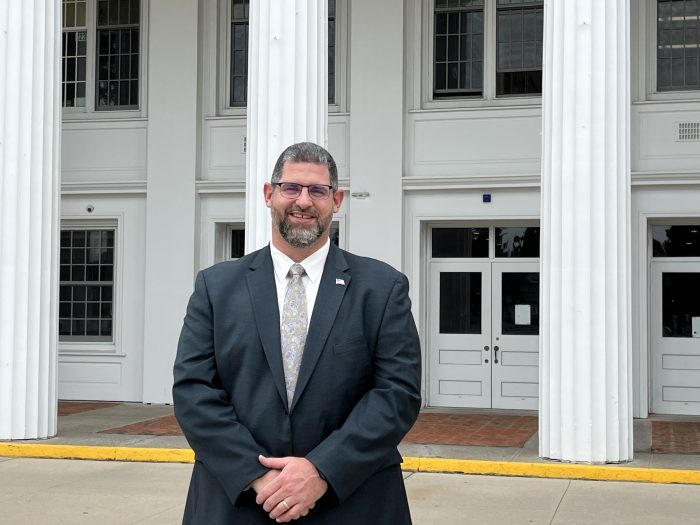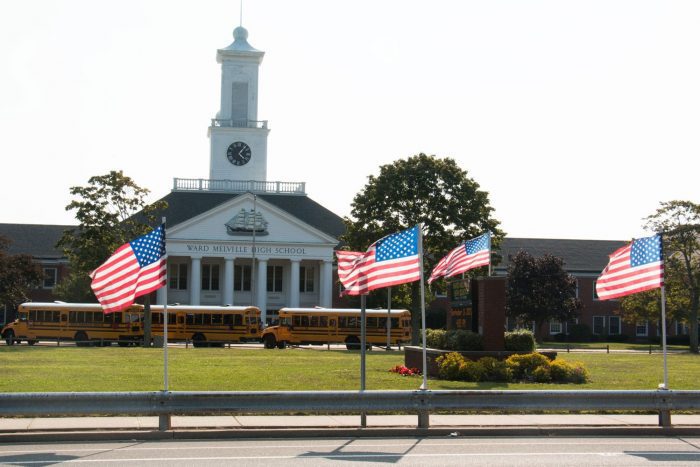By Mallie Jane Kim
Three Village Central School District is set to restructure its schools starting fall 2025, after the Board of Education voted to officially adopt a plan to bring the district in line with New York State standards, moving sixth grade up to form middle schools and placing ninth grade in the high school.
The proposal was the most popular among all stakeholders in a survey last year of students, staff, parents and community members, but several public comments at the Jan. 10 school board meeting called for holding off on the decision.
“If it ain’t broke, don’t fix it, and if you have something that’s boutique, that’s a good thing,” said district parent Kevin DeBlasi, who was one of the commenters to support keeping the district in its current configuration, in part to give students the extra time to mature. “Let them be kids as long as possible,” he said.
Superintendent of Schools Kevin Scanlon pushed back against the idea that change in school structure will damage the education children receive in the district. “Our uniqueness is not in our configuration. Our uniqueness is in the amount of care and concern that the people in this district show for the children that go here,” he said.
Trustee David McKinnon, who indicated he’s usually in favor of not changing things — just look at his house, he joked — agreed. “The problem is that reality is changing, much like my house is deteriorating,” he said. “Enrollment is declining a lot. Change is inevitable here at some point. We’ve reached the point where we have to do something.”
In an email read aloud during the public comments, district parent Michelle Schultz urged the board to wait on reconfiguring schools in order to consider the class of so-called “COVID kindergarteners.” Schultz pointed out that the students who will be sixth graders in 2025 are part of the same class that was sent home from kindergarten in March 2020 due to the COVID-19 pandemic.
“They were prohibited from being within 6 feet of each other and did not have the opportunities to work in collaborative groups or build their social skills,” Schultz wrote, reminding the board that this group missed foundational elementary experiences like field trips, classroom celebrations and interacting normally — at a significant developmental age. “Making the change at this point will impact a group of children who’ve already lost out on a typical elementary school experience,” she added.
Scanlon, who has previously indicated the district has an unprecedented number of students in need of counseling services, validated her concern and said he is committed to addressing increased postpandemic mental health challenges. “We need to keep investing and investing in those things to make sure we have trusted adults at earlier and earlier ages to be able to address the needs of our students as they come through the system,” he said, but added that school configuration won’t change that need. “Regardless of the outcome of the vote tonight by the Board of Education — if we still stay in our current configuration, we are going to have to spend a lot of money to help support the children that are in our system. We have a lot of issues that still need to be addressed.”
Board member Jeffrey Kerman was swayed by the comments and twice made a motion to table the decision to move grades, but no one seconded the motion, so the vote went on. “This is a very large change for a district that is very, very successful, so if we’re going to change it, I want to know why, how, how much it’s going to cost, et cetera,” he said before voting “no.” “I’m not totally against changing it, but I want to know all the information before I vote on something like this.”
For his part, board vice president Vincent Vizzo, a former district teacher and principal, expressed mixed feelings, but said he spent time reviewing the research and survey results before deciding to vote “yes.” “It’s a hard decision for me to make, but at the same time, when I see what the community, what the teachers and what the students looked at and voted for, it makes it a little more simple for me,” he said.
In the administration’s recommendation to the board, Scanlon said closing or repurposing an elementary school should wait in consideration of potential upcoming New York State pre-K requirements, but that district budget considerations could include discussion of renting out a wing of an elementary school and/or part of the North Country administration building.
“Given the current climate of the times, we need to just be careful with all of this occurring all at the same time. And if this is one factor that will alleviate the fear of some of our elementary parents, it’s worth considering,” Scanlon said.
School start times still in limbo
The board voted down a proposal to make secondary school start times later for the next school year but is expected to approve changing times to coincide with district restructuring in 2025-26, as originally proposed.
Start time change advocates had pushed the board to make time adjustments sooner despite an expected higher price tag associated with doing so while the district is still in its current configuration. At the same time, the current proposal only moves Ward Melville High School’s start time by 35 minutes to 7:40 a.m., which some advocates say is simply not enough.
In the 2-4 vote, McKinnon and trustee Shaorui Li voted in favor of a time change for next fall, while long-standing later start time advocate Karen Roughley voted “no,” preferring to wait for an outside consultant to try to figure out more favorable start times without increasing transportation costs as much as the current estimate does. She expressed disappointment that any work by a consultant would come too late to make a time change decision for next fall.
Board president Susan Rosenzweig indicated the board would vote on later start times for 2025-26 at the Jan. 24 meeting.






